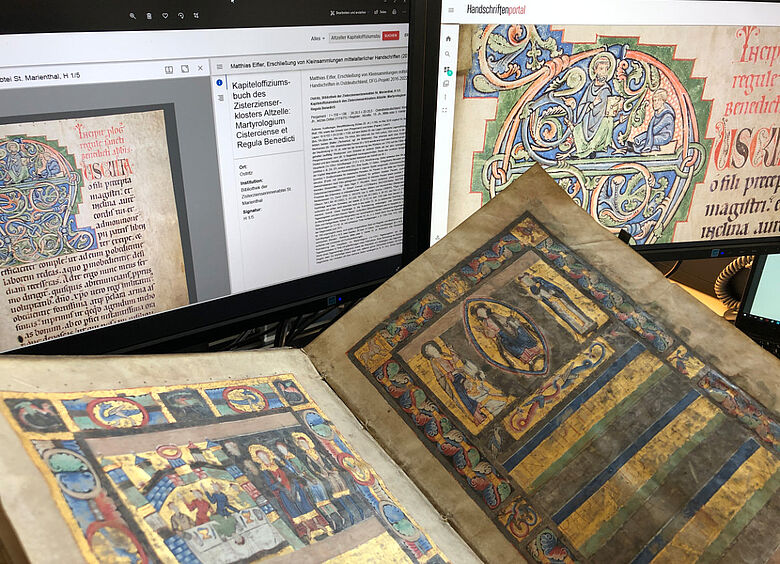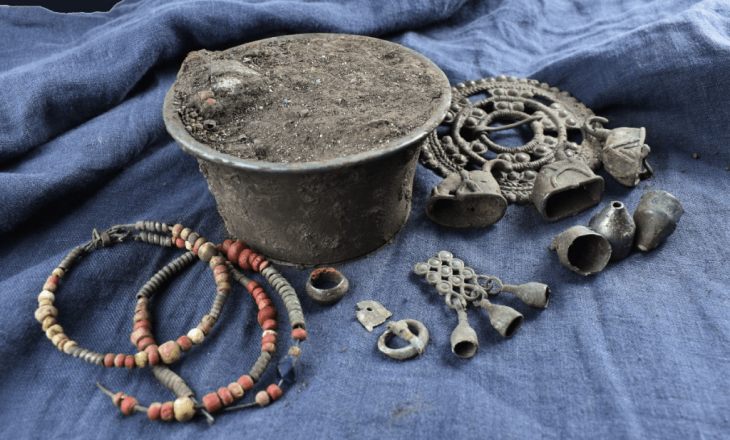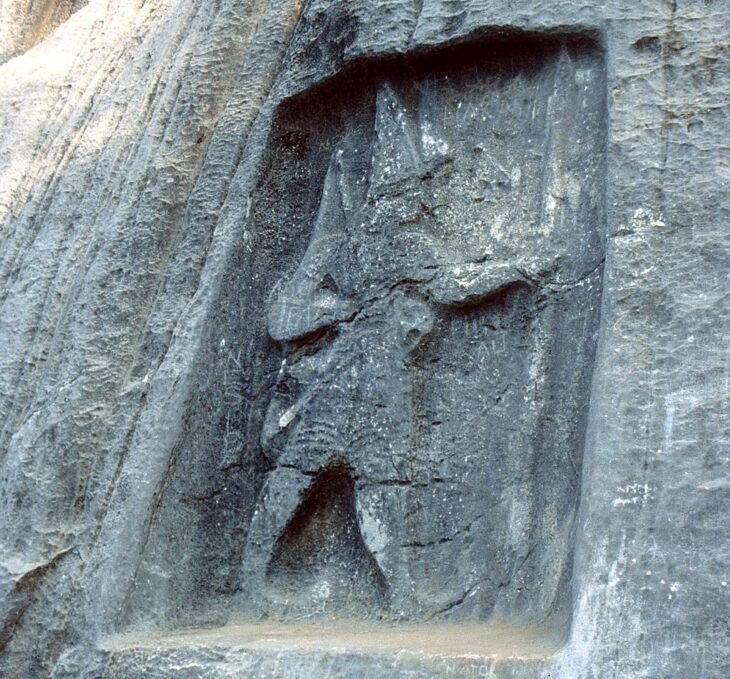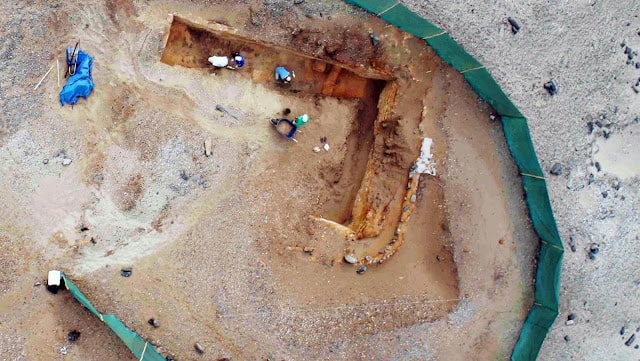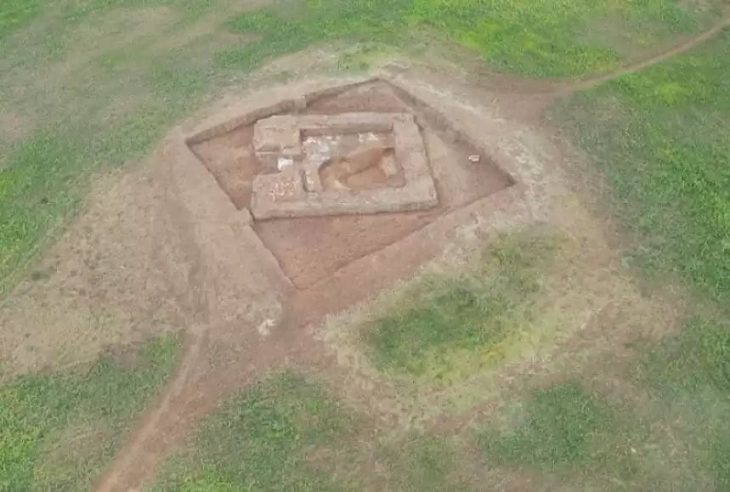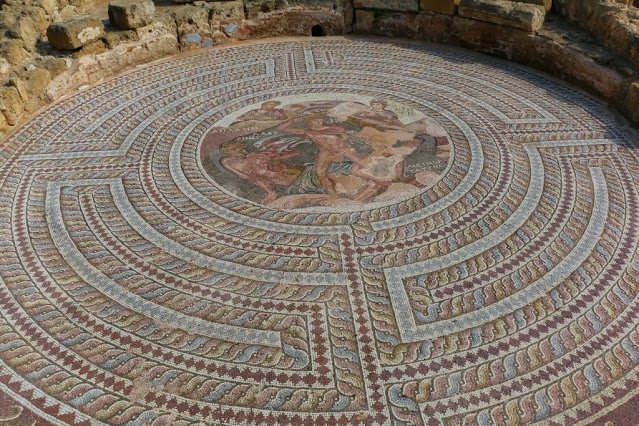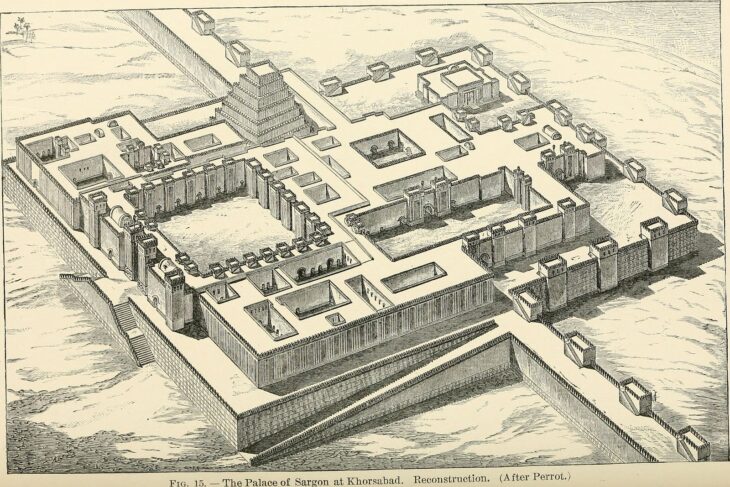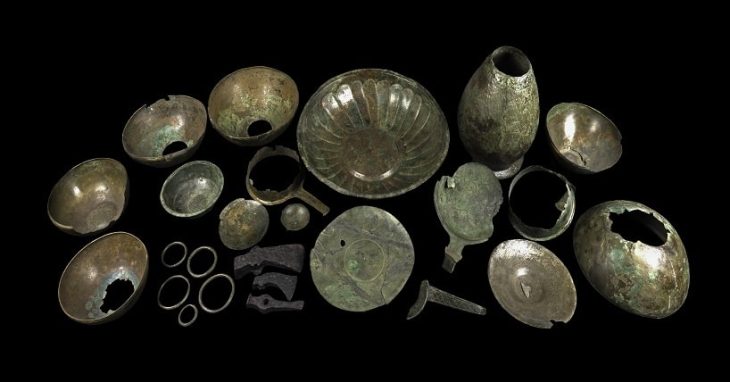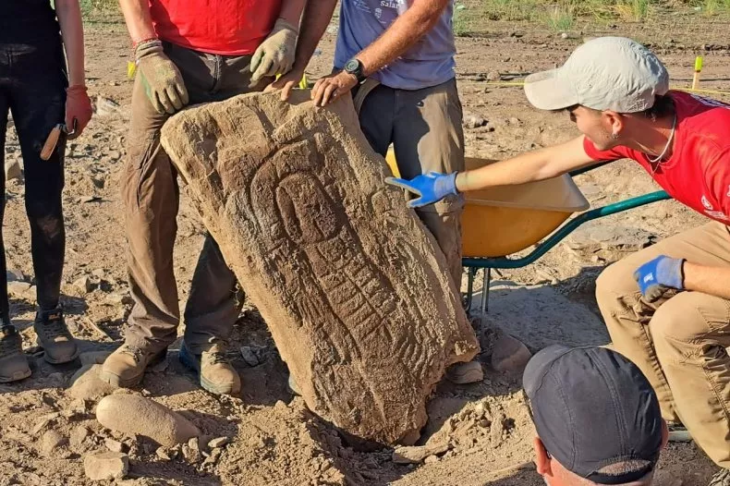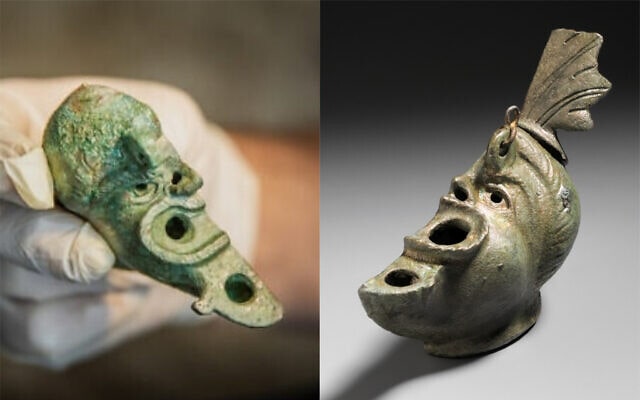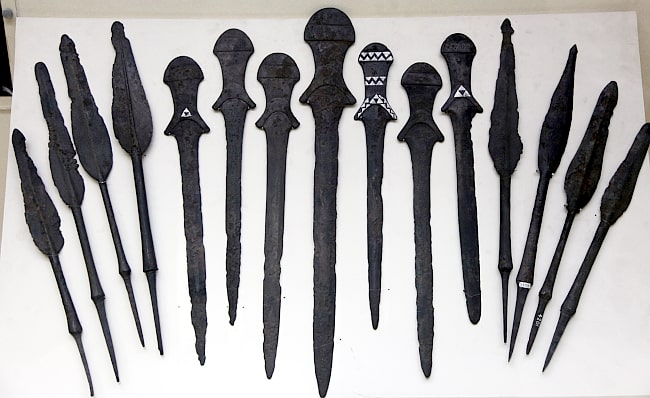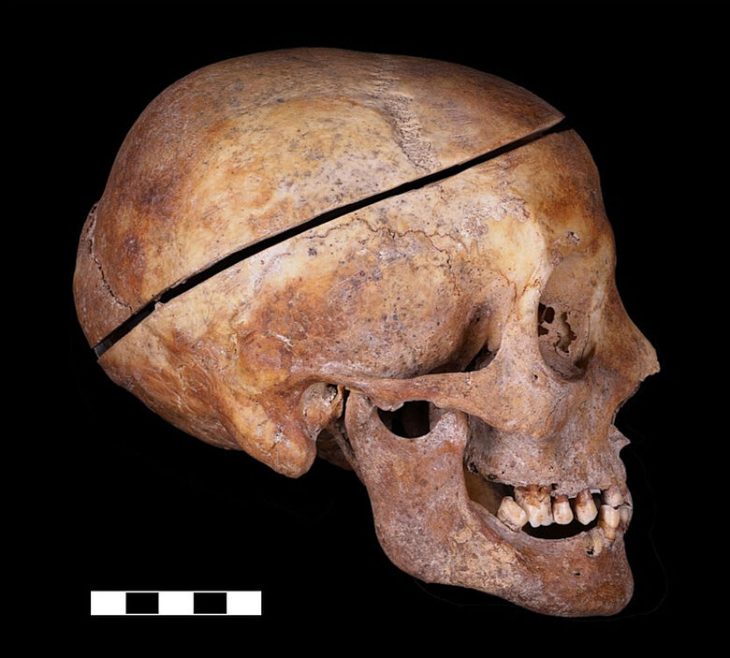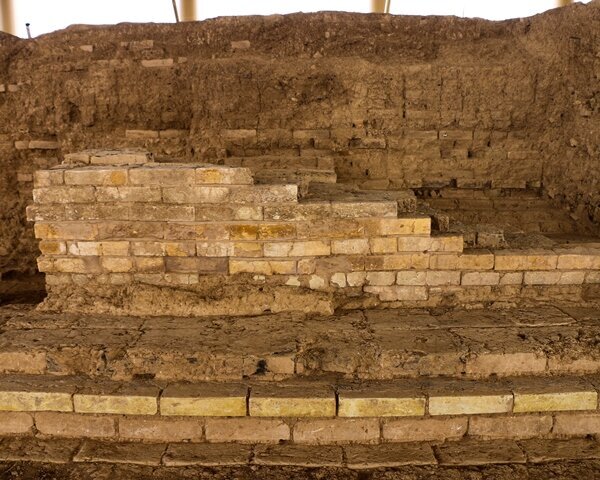Greifswald’s oldest books can be accessed digitally via another new portal. The Manuscript Portal (HSP) is the central online portal for handwritten books from the Middle Ages and modern times. These books are unique cultural artifacts and unique historical sources. The participating libraries from all over Germany make their historical works available to the public and researchers via the portal.
The Greifswald University Library (UBG) and the Library of the Spiritual Ministry in Greifswald as a historical church library have a rich collection of medieval manuscripts. These collections are an important part of the educational and cultural history of Mecklenburg-Western Pomerania. In a project funded by the German Research Foundation (DFG), the Greifswald University Library (UBG) digitized the valuable works and presented the results via the Mecklenburg-Western Pomerania Digital Library and in the manuscript portal.
In the project, 104 manuscript volumes from the Greifswald Ministry of Spirituality and 55 volumes from the holdings of the Greifswald University Library were digitized. In total, this resulted in 83,375 image files with 72,293 pages. Together with previously digitized works, 165 manuscripts stored in Greifswald are now available via the M-V Digital Library and the manuscript portal.
Digitizing medieval manuscripts is a particular challenge. Before they can be scanned, bookbinders and conservators work on books with water damage, loose leaves, or defective bindings. In addition, the employees have to handle the valuable unique items with particular care.
Other holdings of modern texts are often still unrecognized in libraries and archives. Baptism and death registers, files, protocols, and transcripts from the city and university history of Greifswald are waiting to be digitized. The experience of the past few months shows that the accessibility via the handwriting portal also increases usage figures significantly. In addition, new processing options are emerging: users can compare digitized manuscript fragments and put them back together virtually.
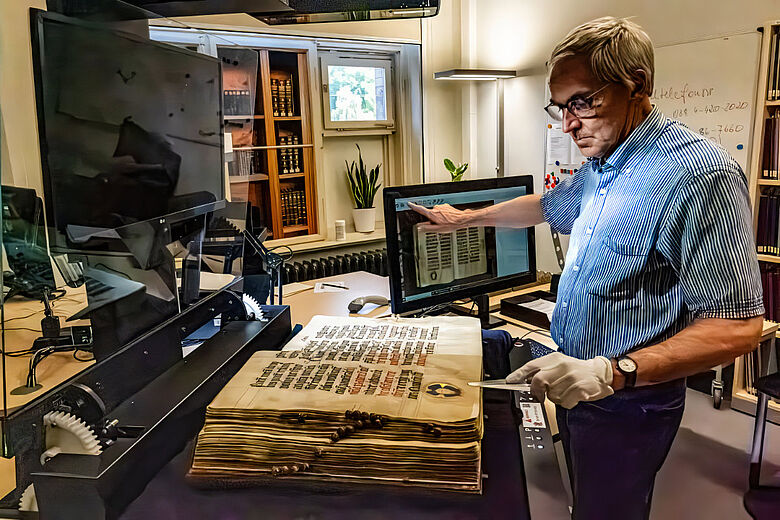
The amount of data is also a challenge. To be able to work with the content of the holdings, new search options must be found. The first steps have been taken through handwriting text recognition: The Greifswald University Library has been involved in several DFG projects using the Transkribus software since 2015. However the further development of this AI is not a sure-fire success; medieval manuscripts in particular require experts who train text recognition in different languages (Latin, Low German, Middle High German) and writing models. The University of Greifswald has the appropriate platforms available and participates in these developments in close cooperation with researchers.
The Manuscript Portal cooperation project is headed by Dr Robert Giel, Head of the Department of Western Manuscripts at the Berlin State Library. Dr. Christoph Mackert, deputy overall project manager, co-founded the Manuscript Centre at Leipzig University Library in 2000, which catalogs and digitizes manuscript collections in many projects, including for the Stralsund City Archive. Bruno Blüggel is head of the Digitisation Centre at Greifswald University Library and has coordinated several third-party-funded digitization projects.
Cover Photo: The libraries’ medieval manuscripts can now be found both analog and digitally. Photo: Katrin Sturm © UB Leipzig

